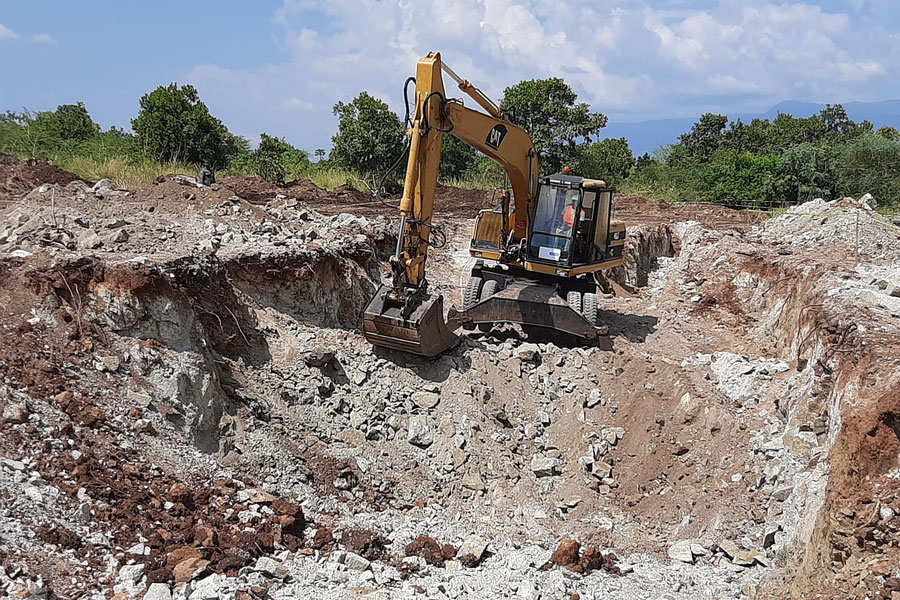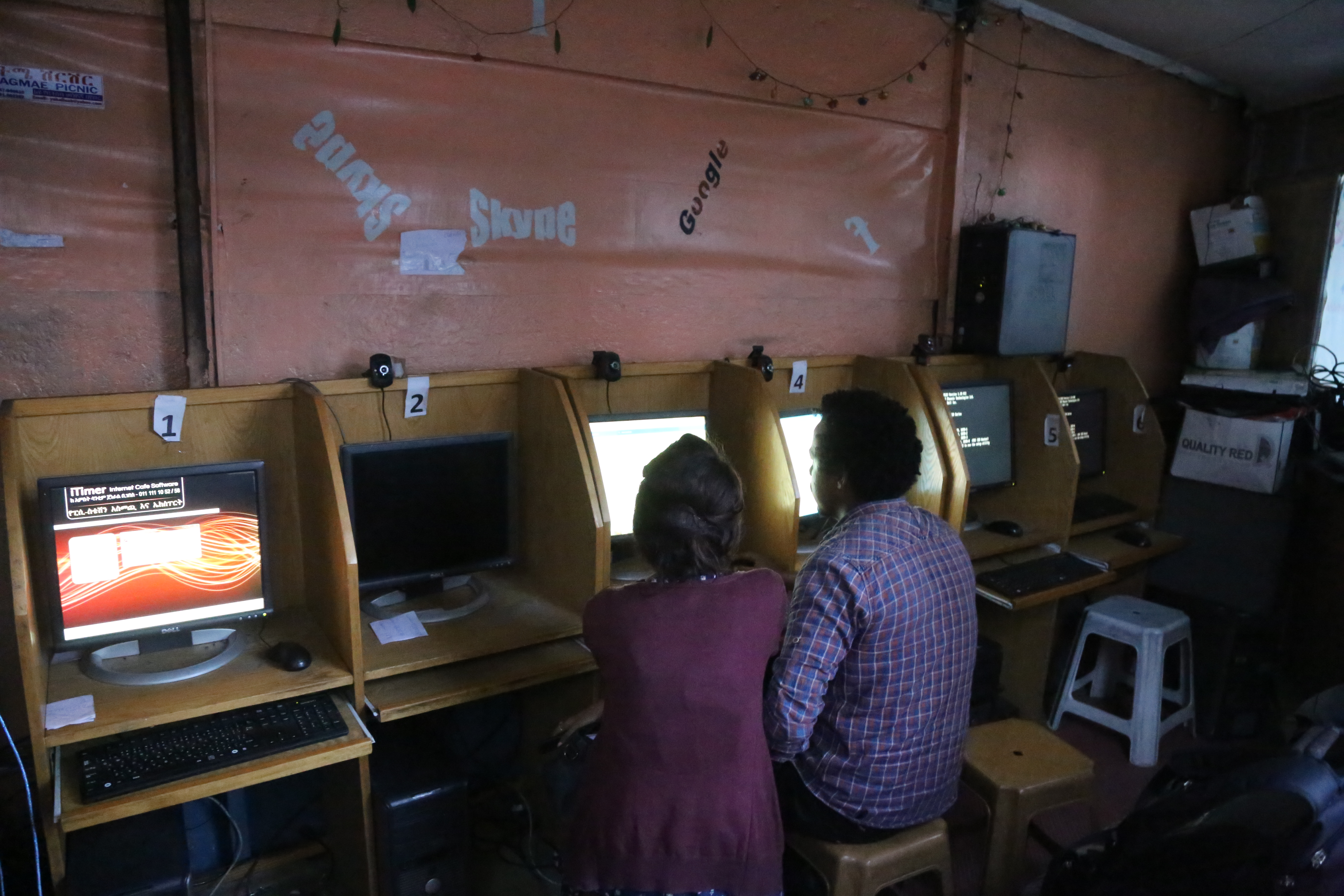
Exclusive Interviews | Jan 05,2020
The Ethiopian Shipping & Logistics Services Enterprise (ESLSE) has introduced new cargo tariffs comprising four times higher than its rate last year, blaming a shortage of containers due to imbalances created during COVID-19 lockdowns. This has put importers in hot water as the Enterprise delays the arrival and delivery of shipments.
The Enterprise has increased its tariffs drastically, setting them as high as 4,838 dollars for 20ft containers and 9,223 dollars for 40ft containers. Managers at the Enterprise attribute the surge in tariffs to market disruptions in the global logistics and shipping industry and insist that the revised fees are fair compared to current global rates.
Overlooking the disruptions and seemingly underprepared, managers at the Enterprise have been confronted with major impediments in delivering cargoes. Importers face delays in the deliveries of their goods, drastic increases in transportation costs, and penalties from banks as letters of credit (LCs) expire. This is despite consecutive notices submitted to banks and the Enterprise citing the delays since April last year.
"We never expected this to happen," concedes Ashenafi Nota, corporate communications head at Enterprise. "It's just a few months back that we started to experience some delays."
Merha Transit Plc is one of the importers sitting in a precarious position – it has four 40ft containers stranded at Ningbo Port in China for two months now.
After receiving letters of credit for a quarter of a million dollars from the Development Bank of Ethiopia (DBE), with a five percent penalty if the three-month contractual period exceeds, Merha used the first month to buy raw materials for the garment factory it runs in Bahir Dar. The company ferried them to Ningbo, a port city in the Zhejiang province of China. However, the Enterprise could not transport the containers despite taking the orders two months ago, leading Merha to incur the penalty, in addition to rental and storage costs at the port.
"The raw materials stranded were planned for our first few months of production," said Ayalsew Mesfin, operations manager. "We're now producing at less than 10pc of our capacity, collecting only locally available materials."
The Enterprise is in talks with the central bank so that a waiver for the letters of credit penalties can be applied for the importers, according to Roba Megersa, CEO of the Enterprise.
"We're giving priority to imports such as medicines and items for mega-projects," Ashenafi told Fortune. "No delays have happened on these, but unfortunately, we have to wait for the availability of containers for most of the orders we've received."
The Enterprise, which has close to 5,000 units of containers, had planned to buy and lease more containers but failed due to growing demand in the market.
“We tried leasing some more containers, but it's just impossible to do given that every shipping company is chasing for available containers," Roba told Fortune. “There weren't containers to buy."
They have issued bid announcements for the assemblies of new ones, but the companies awarded the contract withdrew as they found better offers from competitors.
The justifications are unlikely to be of any comfort to importers.
"We'd already made our orders with the original tariff," said Ayalsew. "We just can't accept this huge increase."
With the Enterprise having a monopoly in the market, operating 11 vessels of its own, including two tankers, importers may have no other choice but to oblige, bearing the increased costs for the transportation of their cargo in the meantime.
The CEO foresees the shortage of containers to continue until the end of this year, hoping to move a large number of containers in three weeks.
China, the Enterprise's major destination and the source of 27.7pc of Ethiopia's imports that stood at 13.8 billion dollars last year, is where the Enterprise faces the problem mostly due to the shortage of containers. This includes raw materials for the local manufacturers.
"The delays could lead to staff layoffs, price hikes, and even to bankruptcy," warns Yitawok Ewunetu, a logistics expert with a decade of experience.
Abdulhadi Jemal, a representative of Bezhan Trading Plc, has been expecting 19 containers of glass products from different ports in China and Thailand since mid-April. He shares the fears.
"Companies that already have stocks will increase the prices on their goods due to scarcity," says Abdulhadi, whose company has two letters of credit signed with the Cooperative Bank of Oromia, with the value of 140,000 dollars and a seven percent penalty upon expiration. "Companies like us with no stock would only be paying staff without production."
The regulation that prohibits private logistics and shipping companies from transporting the goods of Ethiopian importers coupled with a lack of containers globally has worsened the situation, according to Gizeshwork Tessema, CEO of GIZE Plc Logistics & Shipping Company. "We really can't know where the gap is, but we're receiving different queries. We can't find containers."
PUBLISHED ON
Jun 12,2021 [ VOL
22 , NO
1102]

Exclusive Interviews | Jan 05,2020

Fortune News | Dec 25,2022

Viewpoints | Aug 09,2025

Radar | Jun 07,2020

Sponsored Contents | May 22,2023

Agenda | Nov 27,2018

Fortune News | Nov 13,2021

Radar | Dec 19,2020

Commentaries | Apr 19,2025

Radar | May 23,2020

Dec 22 , 2024 . By TIZITA SHEWAFERAW
Charged with transforming colossal state-owned enterprises into modern and competitiv...

Aug 18 , 2024 . By AKSAH ITALO
Although predictable Yonas Zerihun's job in the ride-hailing service is not immune to...

Jul 28 , 2024 . By TIZITA SHEWAFERAW
Unhabitual, perhaps too many, Samuel Gebreyohannes, 38, used to occasionally enjoy a couple of beers at breakfast. However, he recently swit...

Jul 13 , 2024 . By AKSAH ITALO
Investors who rely on tractors, trucks, and field vehicles for commuting, transporting commodities, and f...

Oct 18 , 2025
The political establishment, notably the ruling party and its top brass, has become p...

Oct 11 , 2025
Ladislas Farago, a roving Associated Press (AP) correspondent, arrived in Ethiopia in...

Oct 4 , 2025
Eyob Tekalegn (PhD) had been in the Governor's chair for only weeks when, on Septembe...

Sep 27 , 2025
Four years into an experiment with “shock therapy” in education, the national moo...